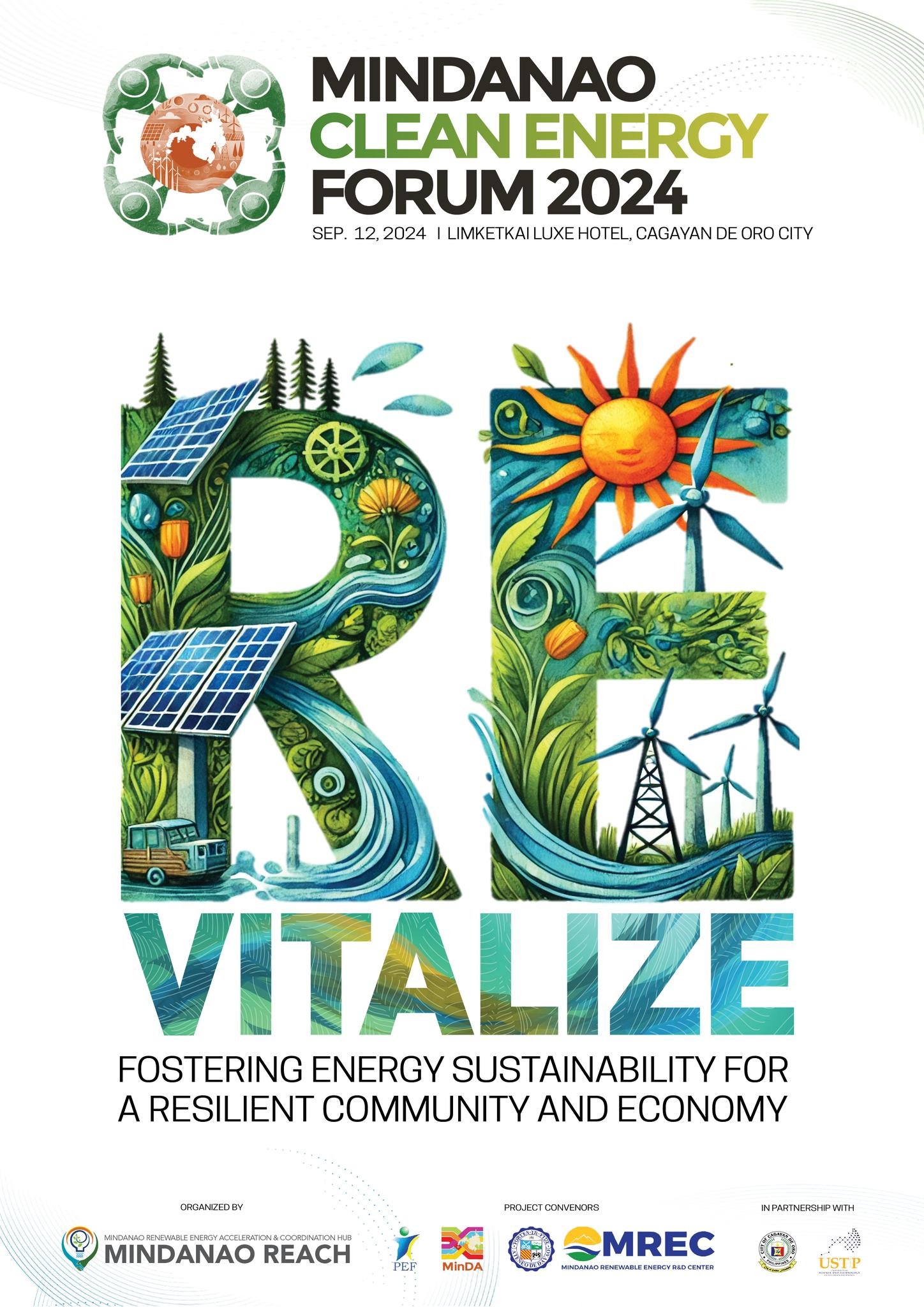
by BenCyrus G. Ellorin
CAGAYAN DE ORO CITY – Leading policymakers, energy sector leaders, and development institutions gather in the city today for the 2nd Mindanao Clean Energy Forum (MCEF), to push for more renewable energy in the island’s power mix.
Spearheaded by the Mindanao Renewable Energy Acceleration and Coordination Hub (Mindanao REACH), the event will dive deep into the challenges and opportunities for local governments and the private sector in adopting renewable energy in their respective communities.
It will also serve as a launching pad for policy development, investment opportunities, and community-driven strategies that leverage renewable energy for sustainable growth. The forum also deliberates the re-transition of Mindanao to renewable energy dependence after the island’s energy mixed shifted from hydropower to fossil fuel, primarily coal dependence in the last 10 years.
Prominent speakers include Mindanao Development Authority (MINDA) Sec. Leo Tereso Magno, Department of Energy (DOE) Undersecretary Giovanni Carlo Bacordo, and Cagayan de Oro City Mayor Rolando Uy. Energy experts like Engr. Cerael Donggay of Greenergy Development Corp. and Alberto Dalusong, Energy Transition Advisor of the Institute for Climate and Sustainable Cities (ICSC) will talk on the need for Mindanao to re-transition to renewable energy dependence. Their presence underscores the importance of collaborative efforts in shaping Mindanao’s clean energy future.
Mindanao REACH is advocating for a 50:50 renewable energy to fossil fuel ratio in Mindanao by 2030. This target is a decade earlier than the national target of 50:50 by 2040. To achieve this target strong implementation of the Renewable Energy Law of 2008 or RA 9513, consumer awareness and investments are needed.
There are 30 committed power plant in Mindanao for this year, with a total of 838.38Mw of dependable capacity. Of this 61.11% are renewable energy. Committed projects are those that are already in the construction phase or have a financial close in place.
Another 33 projects are listed as indicative or in the pre-development stage with combined dependable capacity of 2,654MW. Renewable energy will comprise 69.96% with hydro having the biggest share with 30.77%, wind with 24.8%, solar with 9.79% and biomass with 1.96%. Fossil fuels coal and natural gas have 4.68% and 23.4% respectively.
As of May 2024, data from the DOE reveals that fossil fuel supplies 69% of the island’s energy. Coal is the islands leading source energy with 51.31%, followed by diesel at 17.81%. For renewable energy impounding hydro power plants produce 15.56% of the island’s energy needs, followed by run-off-river hydros with 10.4%. Geothermal contributes 2.67, while ground-mounted hydro contributes 1.31% and 0.94% from biomass.
Mindanao has 96 power plants with a total dependable capacity of 3,978 megawatts.
Improving power access
The movement to advocate for clean and reliable energy for Mindanao through the Mindanao REACH started in October 2020 through the memorandum of understanding signed between the Peace and Equity Foundation (PEF), Ramon Magsaysay Awards Foundation, and SELCO Foundation in India to create a coordination hub that will help push for the shift towards renewable energy in the region, focus on alleviating poverty and supporting local enterprises through sustainable energy solutions.
The commitment was further strengthened in 2022 with a memorandum of agreement between PEF, Ateneo De Davao University (ADDU), and the Mindanao Development Authority (MINDA) to make Mindanao REACH a platform for a multi-stakeholder, grassroots-based strategies in promoting renewable energy in poor communities that are underserved and unserved by traditional grid-based electricity.
Since its inception, the Mindanao REACH has conducted capacity-building initiatives with electric cooperatives and the local government units on project proposal development and local energy planning and management.
The advocacy hub also supported the implementation of the Productive Uses of Renewable Energy or PURE programs in the region. In Region XII alone, the Mindanao REACH convenor, PEF, has provided technology and equipment for coffee-producing communities for their post-processing activities, thereby increasing the economic activities and incomes of the farmers. (with Mindanao REACH press release)







